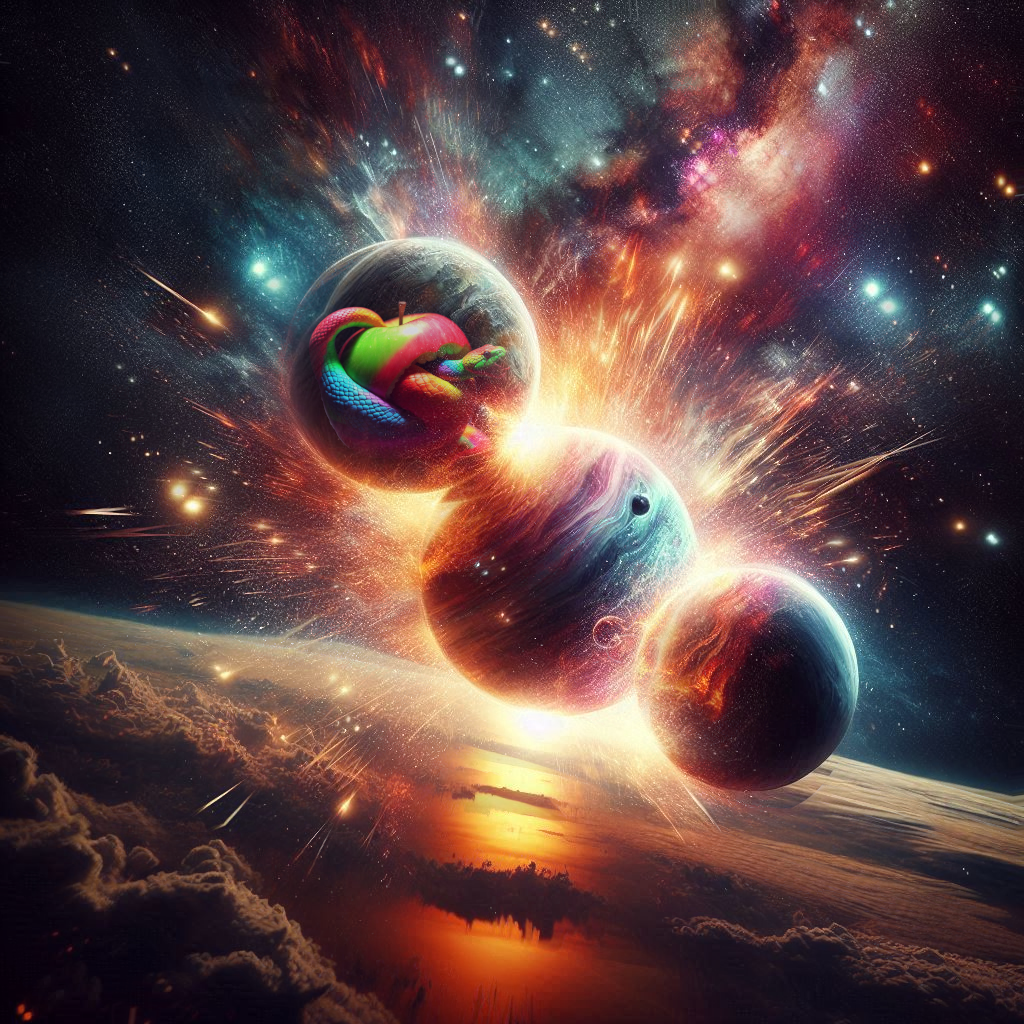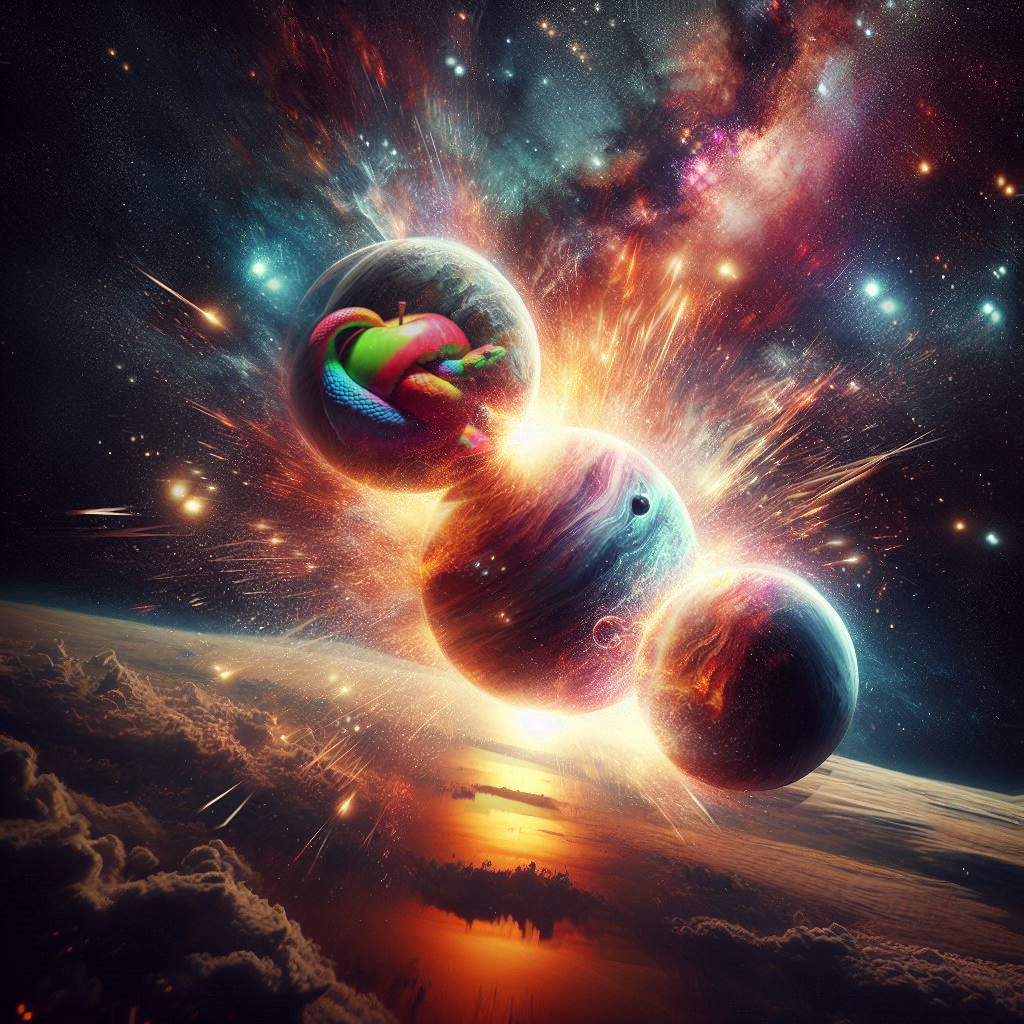
Worlds of worlds No 1 : Karl Popper's 1…2…3.
These Worlds of Worlds posts wander through some uses of the word world.
Each use can be a world of its own.
But just as the world is home for all our homes, it is also the home for all worlds, even if these worlds-of-their-own, these ‘epistemic enclaves’ as J.N. Nielsen calls them, can see and or seek no others outside of themselves.
Almost like exclaves to the world of homes.
I use the word world more poetically, and to define it would mean defining a very plastic thing. Worlding is a very plastic thing. It probably deserves some very careful considertion, but to avoid defining it to death, I’ll leave it suspended while i react to other uses of the word: world/worlding/worldbuilding.

Popper Worlds 1…2…3…
Today I will compare this blurry defined worlding world of mine to a description of series of worlds described by Raul Palomares as ascribed to Karl Popper on the facebook group Epistemology, in response to a post by Jorge Avila.
Karl Popper's also had a concept of three worlds which is a philosophical framework that categorizes different realms of knowledge. The three worlds are:
World 1: The Physical World
- This encompasses all physical objects and events, including inanimate matter and biological organisms. Everything that exists physically, from rocks to human bodies, belongs to this world. It is the objective reality that exists independently of human perception.
World 2: The World of Conscious Experience
- This world consists of mental states, thoughts, and subjective experiences. It includes sensations, emotions, and consciousness. While World 1 can be studied through natural sciences, World 2 deals with the internal experiences that are unique to each individual.
World 3: The World of Objective Knowledge
- World 3 includes the products of the human mind that exist independently of any one individual's consciousness. This encompasses scientific theories, mathematical constructs, cultural artifacts, works of art, and the content of books. These entities can be objectively shared, criticized, and developed over time, making them part of a collective human understanding.
Popper emphasized the importance of World 3 in the growth of knowledge, arguing that it allows for objective progress in science and culture by providing a repository of shared knowledge that can be critically examined and built upon.
First off, it looks like a version of the great chain of being, which Sister Luke taught me in primary school. Sister Luke’s explanation included angels and it set me up well for reading Tolkien a few years a later. (See worldbuilding 101).
Second it sets up a division of knowledge acquisition, or rather, it divides the world of worlds by different epistemic methodologies and foci.
Thirdly, I ask, why stop there at three then?
We have lots of methods and arguments for all sort of methodologies and disciplines, why not more? (Why not one ring to rule them all and inthe darkness bind them?)
Then it catches my eye. Objective knowledge is third. Not the objects themselves of course, they are in World 1. But hard knowledge about worlds 1 & 2… —and 3 ?
I.E. no angels need apply.
It also looks like an intersubjective outcome. Which means it is political. Which means I ask why is the word 'objective' used here? Because they
“can be objectively shared”.
So there is a consensus process to this sharing→heading towards objective knowledge. But how exactly, or even, how inexactly.
And what if some epistemic enclave refuses to recognise the process and go off on some conspiratorial rant about lizard people and the deep state controlling the wheelhouse of the corporation? Or something. Because they control the world. You sheeple.
What if there is a refusal to share objects? (Another reason the word thing is a better word than object, for the thing is, that even if you refuse to share said thing/object, the refusal is still a thing among things, while a refused object is an abject refusal. Objectivism [here re-used and upcycled] is a type of radical separatism. Most speratism are death cults and thus are very bad worlding indeed.)

My own rant
No one controls the world.
Empires have tried to create an objective shared reality for several cycles of their rise and fall and none have succeeeded at this, even when they make it a core central project like Constantinople-based Roman Christianity (one god, one imperial cult I-mean-church/government-department/thought-police, and one ruler). They even had one parish go rogue, and head off back to Rome and proclaim itself the Roman Empire under god's pope. (See To build a better world, we should destroy the Catholic Church.)
That science might set itself up to objectively inform such an objective project will scare the bejeesus out of the lizard people, or the people who believe in the lizard people controlling the swamp of state. Or whatever it is.
The only “objective” thing about the whole poltical mess is that we all have an urge to organise it. 'It' being the world.
This is what the lizardophobes project onto them, i.e. their own worlding agency.
Any project that does not recognise that first organizing principle will produce bad worlding. As much bad worlding as any empire has done. Even with all their resources empires fail at this, they might prevent the end of history, but they can never control the world.
Popper's World 3 might allow for “objective progress” in science and culture but we ain't seen it yet, in any attempt, and where we do see it arise into 'progress', it is despite the empires in the world.
As an aid to comparison I’ll jot down here my disjoint mapping between Popper’s three worlds and how I world.
World 1: The Physical World- This encompasses all physical objects and events…
This is not a world at all, it is the substrate for the terrain. Life lift-offs from it on a gradient of protons, or energy…
World 2: The World of Conscious Experience - This world consists of mental states, thoughts, and subjective experiences. It includes sensations, emotions, and consciousness. …
This is an umwelt, a self with its homey world in a landscape it composes with its body from the substrate of the terrain (in which the terrain may be composed of other lives’ umwelten. A proto-world not very separated from the self’s sense of self. A world almost… The world is a form of the self and vice versa. They are a composition we dance.
World 3: The World of Objective Knowledge - World 3 includes the products of the human mind that exist independently of any one individual's consciousness…
This is not a world either, there is a huge gap between 1 & 2, while it does include worldly things —“products" I guess, they are not “independent” except in abject forms (Lacan’s writing as his poo, world 3 is a sewage system?) Seems to point to objective objects that exist as logical imperatives or mathematically mapped realities. Surveyed? Judged? Laws? Title deeds?
Of course surveyors or judges, or panels of judges or immortals, mean socio-economic questions and some legitimacy that lizard people cannot provide. Poor sods.
Popper, IMHO, does not even get to the world I am talking about when I am talking about worlding.
Worlding steps off from his World 2, through his World 3, into the real world. Which does not exist (this is why it cannot be the world of objective knowledge, just ask the lizard people).
Popper’s World 3 of objective shared stuff is a map of the territory, the substrate, and not the territory itself, even if it is a 1:1 scale and accurate enough to become an ever more accurate map.
It stops there because it does not integrate very well the way life integrates the terrain or substrate into the body/landscape composition, that itself becomes by iterative turn complex and generational, the substrate for other body/landscape compositions.
I mean it does a bit, that's why we have 'tech bros'.
The world is a mess of increasing complexity and stupifying detail, and it doesn't even exist. But we live in it. It exists as much as the self does not exist. But we live that too.
How can something that does not exist produce objective knowledge?
The world of worlds, is a world of self-aware body/landscapes in all of their number/s and awarenesses of themselves and others and themselves with others. Not just as psychological entities, or save me, identities, but in negotiating things in the world. Admittedly we do/attempt/fail/succeed that by objectiving everything, but not all the time, and the negotiations about things and what is an object is a key part of organizing the world, which we all feel we should do.
This urge maybe an objective fact, but it does not care about objective knowledge, only that we organise stuff… like what Popper does with his world 1…2…
That is the only objective fact. But it makes a very large world indeed.
(I’ll grant leave to possibly derivatives of that objective fact, but please do not confuse outcomes with causes.)
Other posts on the word world as I world it.
